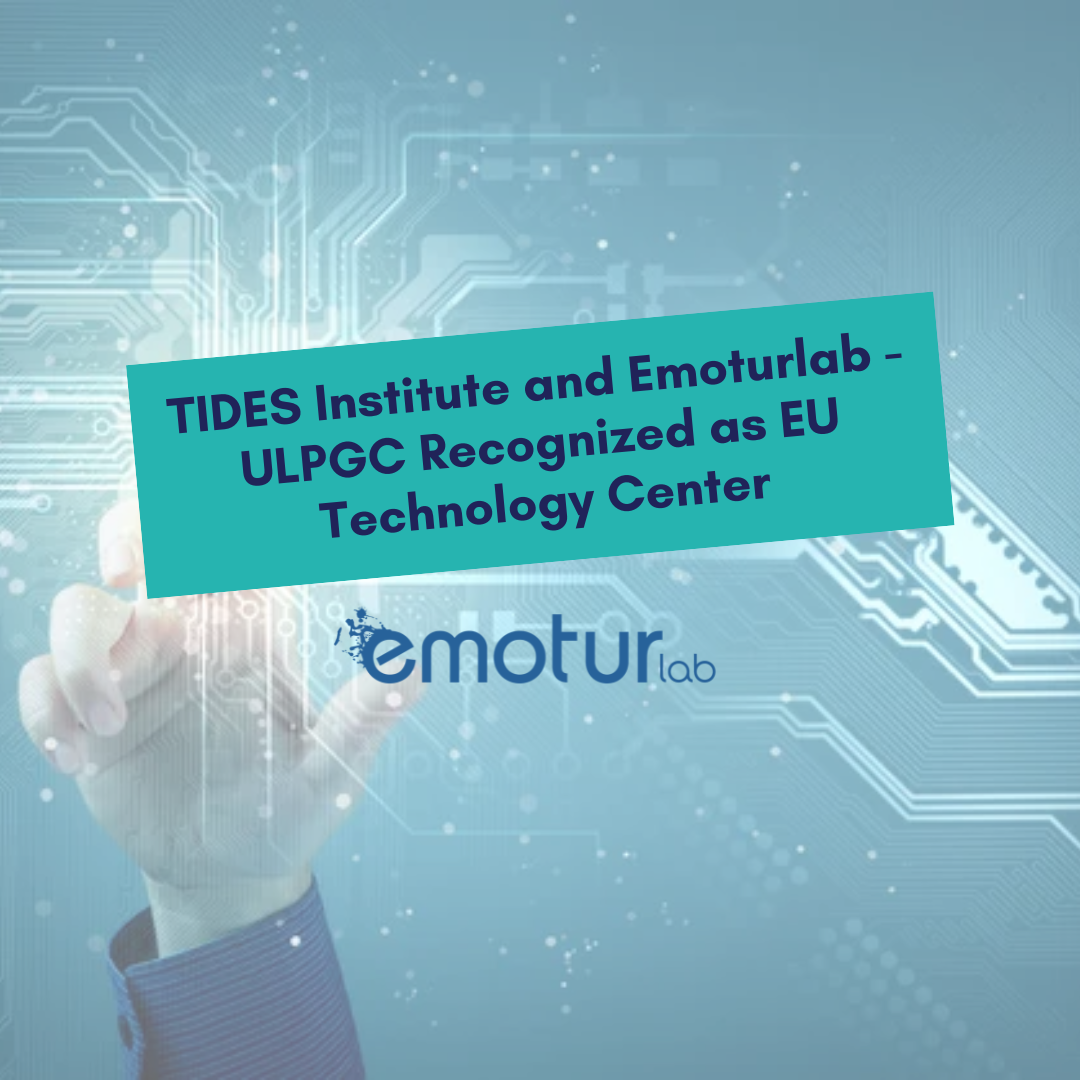TIDES Institute and Emoturlab – ULPGC Recognized as EU Technology Center: An Ally for Neurotourism and Tourist Behavior Analysis, and Climate Adaptation
The Instituto Universitario de Turismo y Desarrollo Económico Sostenible (TIDES) and EMOTUR laboratory of the ULPGC has been recognized as a member of the network of Technology Centers, entities that promote small and medium-sized enterprises (SMEs) to cross the “Valley of Death” and go from the laboratory to the market to develop and produce new technology-based products. Among the 395 in the EU, only 7 are specialized in the area of tourism.
Technology Centers are recognized for carrying out applied research and innovation close to the market (Technology Readiness Levels TRL 3 to 8, not necessarily the entire range) in digital technologies, green technologies and other advanced technologies: Access to technological experience and facilities for validation; Proof of concept / laboratory tests; Prototype development and testing; Product validation / certification.
TIDES and EMOTURLAB, as a technology center, offers two main innovation services:
- Emotur Laboratory for the analysis of emotions and tourist behavior:
This service uses neuromarketing techniques to analyze social behavior through neuroscientific methods that measure the brain activity and physiological variables of individuals (eye tracking, analysis of emotions through facial expressions, EEG, extended reality, and other physiological responses). It can be used for a wide range of analyzes that improve the well-being of tourists and residents, the performance of companies and destinations, and environmental and social indicators.
Emoturlab includes laboratory techniques in a controlled environment, in a real environment, in an immersive virtual environment – metaverse, and in a real sensory immersive environment, which includes EMOFOODLab:
It allows to understand the influence of gastronomy on the emotions of tourists, their experience in the destination and the post-trip phase.
In addition to monitoring these aspects, the center designs products and experiences around gastronomy to:
- Enhance the identity of destinations.
- Integrate them better into the value chain. The applications of the digital laboratory can be extended to other sectoral activities such as shopping, commerce, public and health services, museums, etc.
- Climate Service – Regional Information Exchange Platform (REIS):
The REIS platform is an online tool aimed at policymakers and professionals in the tourism sector to help them design personalized climate change adaptation strategies. It offers two key services:
- Expert panel: Formed by a multidisciplinary group of scientists and policymakers with extensive experience in analyzing the impact of climate change on the islands. The panel provides assistance and advice through a personalized networking area, supporting in:
- Climate forecasts on a reduced scale (regions and islands).
- Subsequent socioeconomic impacts on sectoral activities.
- Island adaptation support tool: A practical guide to understanding the impacts of climate change in the context of European islands and Outermost Regions. It offers specific knowledge on:
- Physical impacts of climate change.
- Non-economic and socioeconomic consequences.
- Possible viable adaptation pathways framed in the geographical, economic and social context of each analyzed island.
In summary, the TIDES Institute and Emoturlab – ULPGC offer a valuable range of services for the tourism sector, helping businesses and destinations to better understand and adapt to the needs of tourists and the challenges of climate change.
